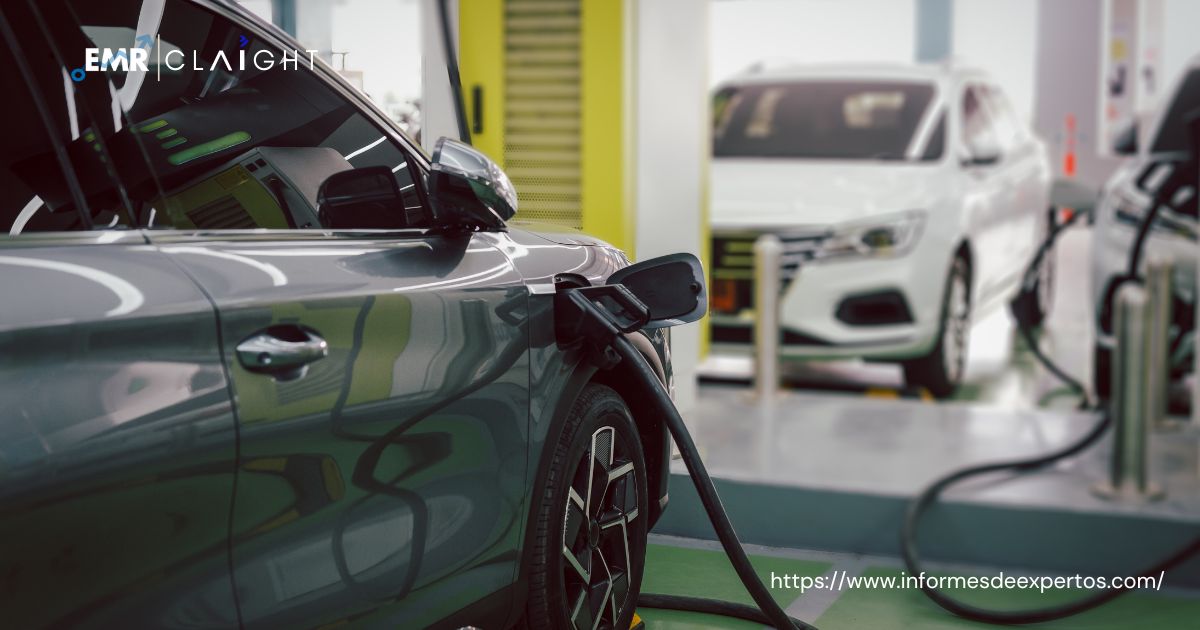The Mexico hybrid electric vehicle (HEV) market represents a burgeoning sector within the automotive industry, characterized by the adoption of vehicles that integrate both conventional internal combustion engines (ICE) and electric propulsion systems. As the automotive landscape evolves globally towards sustainable mobility solutions, Mexico emerges as a key market for hybrid vehicles, driven by environmental concerns, government incentives, and technological advancements.
Overview:
The Mexico hybrid electric vehicle market reflects the broader global trend towards electrification and decarbonization of transportation. Hybrid vehicles combine the benefits of traditional ICE vehicles with electric propulsion, offering improved fuel efficiency, reduced emissions, and enhanced driving performance. In Mexico, the adoption of HEVs is influenced by factors such as government policies, consumer preferences, infrastructure development, and the regulatory environment.
Market Dynamics:
The dynamics of the Mexico hybrid electric vehicle market are shaped by various factors, including:
- Environmental Concerns: Growing awareness of environmental issues such as air pollution, greenhouse gas emissions, and climate change drives the demand for cleaner and more sustainable transportation solutions. HEVs offer a transitional pathway towards electrification, reducing reliance on fossil fuels and mitigating environmental impact.
- Government Incentives: Government initiatives and incentives play a crucial role in promoting the adoption of hybrid electric vehicles. In Mexico, incentives such as tax incentives, subsidies, and exemptions from vehicle registration fees incentivize consumers to purchase HEVs, making them more economically viable and attractive.
- Fuel Efficiency Regulations: Regulatory mandates aimed at improving fuel efficiency and reducing emissions drive automakers to introduce hybrid electric vehicles into their product portfolios. Compliance with fuel efficiency standards incentivizes manufacturers to invest in hybrid technology and offer a diverse range of HEV models to consumers.
- Technological Advancements: Advances in hybrid electric vehicle technology, including battery technology, powertrain optimization, and regenerative braking systems, contribute to improved performance, efficiency, and reliability of HEVs. Continuous innovation and research in electric drivetrain technology enhance the appeal and competitiveness of hybrid vehicles in the market.
- Consumer Preferences: Changing consumer preferences towards fuel-efficient, eco-friendly vehicles influence the demand for hybrid electric vehicles. Factors such as rising fuel prices, concerns about air quality, and the desire for advanced technology features drive consumers to consider HEVs as viable alternatives to conventional ICE vehicles.
Key Players:
The Mexico hybrid electric vehicle market is served by a diverse array of automakers, both domestic and international, offering a range of hybrid models tailored to meet the needs and preferences of Mexican consumers. Some of the key players in the Mexico HEV market include:
- Toyota Motor Corporation: Toyota is a leading global manufacturer of hybrid electric vehicles, with popular models such as the Toyota Prius and Toyota Camry Hybrid. The company’s commitment to hybrid technology and sustainability aligns with consumer preferences for fuel-efficient and eco-friendly vehicles.
- Honda Motor Co., Ltd.: Honda offers a range of hybrid electric vehicles, including the Honda Insight, Honda Accord Hybrid, and Honda CR-V Hybrid. The company’s emphasis on innovation, performance, and reliability appeals to Mexican consumers seeking hybrid options in the market.
- Nissan Motor Corporation: Nissan has introduced hybrid electric variants of popular models such as the Nissan Altima Hybrid and Nissan Pathfinder Hybrid. The company’s hybrid offerings combine fuel efficiency with Nissan’s reputation for quality and value, catering to diverse consumer segments.
- Volkswagen Group: Volkswagen offers hybrid electric models under its various brands, including Volkswagen, Audi, and Porsche. Models such as the Volkswagen Golf GTE and Audi Q5 Hybrid showcase the company’s commitment to electrification and technological innovation in the Mexican market.
- General Motors Company: General Motors produces hybrid electric vehicles under its Chevrolet brand, including the Chevrolet Malibu Hybrid and Chevrolet Tahoe Hybrid. The company’s hybrid lineup combines performance, versatility, and fuel efficiency to meet the needs of Mexican consumers.
Future Outlook:
The future of the Mexico hybrid electric vehicle market is shaped by evolving consumer preferences, technological advancements, infrastructure development, and government policies aimed at promoting sustainable transportation solutions. Key trends influencing the future outlook of the market include:
- Electrification Trends: The Mexico HEV market is expected to witness continued growth as automakers introduce new hybrid models and expand their electrified product portfolios. Hybrid technology serves as a bridge to full electrification, offering consumers a familiar yet more sustainable driving experience.
- Infrastructure Development: Investment in charging infrastructure and support for electrified transportation initiatives are critical for the widespread adoption of hybrid electric vehicles in Mexico. Government and private sector collaboration is needed to expand charging networks and address range anxiety concerns among consumers.
- Regulatory Landscape: Regulatory mandates aimed at reducing emissions and improving fuel efficiency will drive automakers to invest in hybrid electric vehicle technology and introduce more electrified models into the market. Compliance with environmental regulations and fuel efficiency standards will shape the product strategies of automakers operating in Mexico.
- Consumer Awareness and Education: Continued efforts to raise awareness about the benefits of hybrid electric vehicles, including fuel savings, environmental impact, and technological advancements, will contribute to increased adoption rates among Mexican consumers. Education campaigns and incentives can help dispel misconceptions and encourage the transition to more sustainable transportation options.


